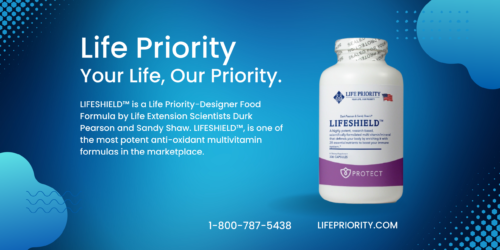

Do you ingest enough choline?
- by Life Priority
- No Comments
- Post Views: 24
| Do You Get Enough Choline? Are You One of the 92% of the Population That Does Not Consume the Adequate Intake of Choline Recommended by the Institute of Medicine? Do you ingest enough choline? The Durk Pearson & Sandy Shaw Life Extension NewsTM Volume 18 No. 2 – June 2015 Are You One of the 92% of the Population That Does Not Consume the Adequate Intake of Choline Recommended by the Institute of Medicine?Choline is an Essential Nutrient, But Much More an article in a food industry trade journal (Hutt. “Choline: the Silent Deficiency,” Prepared Foods, Jan. 2015) warns that Choline is the “Silent Deficiency” and cites Institute of Medicine data from 2007 to 2010 showing that 92% of Americans are not getting the recommended AI (adequate intake) of choline, 550 mg/day for men and 425 mg/day for women (more is recommended in the case of pregnant and lactating women). The article points out the opportunity for the food industry to “do well by doing good” (our words, not the article’s) by fortifying foods with choline. As they explain, the FDA allows a claim of a “good” source of choline for a product containing 75 mg of choline chloride or 137.5 mg of choline bitartrate per serving. To be permitted to say your product is an “excellent” source of choline, the FDA requires that the product contains twice this much per serving. Chances are that you are not getting enough choline in your diet and, unless you take a choline supplement, you are not ingesting the AI recommended by the Institute of Medicine, an amount that (on the basis of the scientific literature) is on the low side of what would be optimal. Here are a few of the important health benefits provided by choline, some of which you have undoubtedly read about but others you are likely to have never heard of. You should know about these if you are not yet taking a choline supplement.NOTE TO OUR READERS: In order to keep this newsletter from expanding beyond the bounds of a reader’s reasonable time to spare, we have not included much of what we had written up on beneficial effects of choline. More on that in a later newsletter! Choline for Memory & LearningOne of the oldest known and studied effects of the cholinergic nervous system is its relation to learning and memory, with one early influential paper from 1974.1 A later paper2 showed that acetylcholine in the forebrain regulates adult hippocampal neurogenesis and learning. A recent paper3 reported that in a community-based population of nondemented individuals, participants in the Framingham Offspring Cohort (744 women and 647 men aged 36–83), higher concurrent dietary choline intake was related to better cognitive performance. Reference Chiang, Eisenberger, et al. Negative and competitive social interactions are related to heightened proinflammatory cytokine activity. Proc Natl Acad Sci U S A. 109(6):1878–82 (2012).Love, a Book of Quotations, edited by Ann Braybrooks (Dover Publications, 2012). |
Sign up for emails from OneHeartNetwork.com:
By providing your email address, you are agreeing to our privacy policy.
RECOMMENDED


Tribute To Durk Pearson and Sandy Shaw
No Comments


